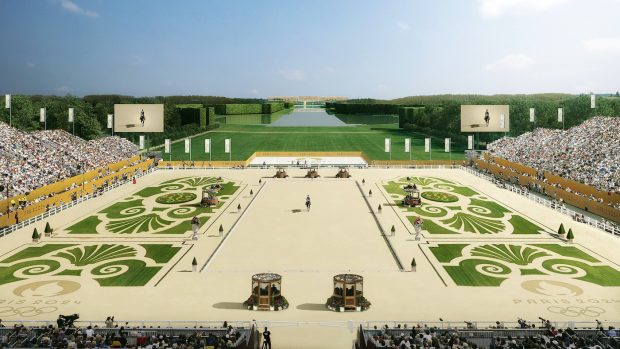Britain is brimming with talented young riders. But how many realise there is a host of grants, bursaries and other opportunities out there for them? H&H looks at what’s available and explains how to apply
• BRITISH DRESSAGE (BD) offers training for talented riders aged eight to 25 years under the British Young Riders Dressage Scheme (BYRDS). It caters for everything from riders looking to have fun, up to support for youngsters on the pony, junior and young rider squads.
There are viewing days around the country for the different squads, although it’s important to note that potential, as well as performance on the day, is important to selectors. Visit www.britishdressage.co.uk for all training, selection and squad details.
Last year, BD introduced the young professionals award, a £4,000 bursary for 18- to 25-year-olds wanting to make a career out of dressage. To find out more go to www.britishdressage.co.uk/under_25s/young_professionals
Note: the closing date for applications for this year is 1 August.
• BRITISH DRIVING SOCIETY (BDS) offers a yearly training scholarship worth £500 to its junior members. There are two categories — 11-14 and 15-18 years. Visit www.britishdrivingsociety.co.uk to find out more.
• BRITISH EVENTING (BE) runs a youth scheme with five levels — BE100JR for ages 12-18 years, ponies (12-16 years), JRN (13-18 years), juniors (14-18 years) and young riders (19-21 years). At all levels, training, support and guidance are given to boost competitive performance. The scheme is about improving results, but education and fun is an integral part, too.
For acceptance on the scheme at any level, young riders — and their ponies/horses — must fulfil a set of criteria. Throughout the year, selectors then assess performance at a specified event. Consistency, results, temperament plus other, less tangible, factors such as competitive drive, are also taken into account in team selection. Visit www.britisheventing.com for entry details for the 2011 scheme, including selectors’ names and selection trials.
• BRITISH SHOWJUMPING (BS) has four international squads — children’s squad, John Whitaker pony squad, Tretorn junior squad and Tretorn young riders squad — and BS provides both training and support to improve the squads’ medal-winning chances.
Selectors assess performance at viewing trials throughout the year. Juniors are expected to jump 1.35m, young riders 1.45m. To find out more, go to www.britishshowjumping.co.uk , or contact Sue Wingrave, tel: 02476 698807, for details of viewing trials.
For young equestrians aiming to improve their knowledge — and to have fun — BS also runs a junior scholarship, a pony proficiency award (for riders of ponies 138cm and above) and nationwide junior training academies for riders under 18.
• PONY CLUB The Katy and Eloise Memorial Trust bursary is offered at the Pony Club Championships to the five section winners in the open eventing class. Winners receive training with Gill Watson.
The Urky Newton bursary is awarded to one rider under 21 in the open class who, in the opinion of the judges, has ridden the most competent horsemanship round in the cross-country section. The winner has five days with Jane Holderness-Roddam.
A similar bursary is awarded to a rider under-18 in the intermediate class, worth £300, to be spent with a trainer of their choice.
This article was first published in full in the young rider special issue of Horse & Hound (29 April, ’10)



